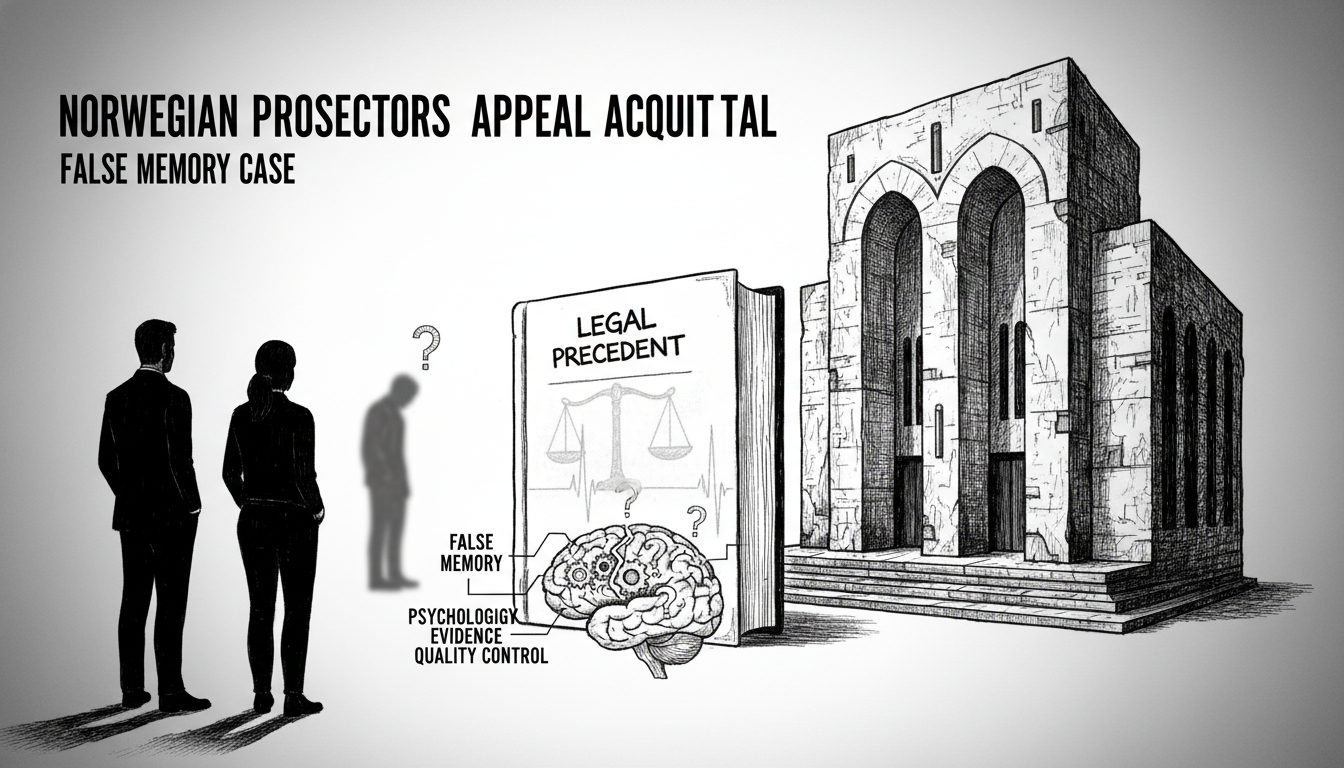Norwegian prosecutors have appealed the acquittal of Hamse Ali, who was cleared earlier this month of giving false testimony about an alleged violent incident in Bergen's Nygårdsparken. The case centers on controversial testimony about false memories that secured Ali's freedom.
The initial acquittal came after neuropsychologist Knut Dalen testified that Ali's account could stem from fabricated memories. These memories potentially resulted from a combination of high alcohol consumption and head trauma. Dalen's testimony proved so convincing that even the prosecuting attorney who originally sought punishment changed position and recommended acquittal.
Now prosecutors challenge the court's decision. They argue the legal process contained procedural errors. Norwegian law requires the Forensic Medicine Commission to quality-assure such expert statements. Prosecutors claim this crucial step was overlooked.
In their appeal statement, officials stated the law mandates quality control of such statements. They believe the failure to obtain this verification constitutes procedural errors that may have influenced the judgment's content.
The case raises important questions about legal standards. Prosecutors suggest the outcome could impact other legal proceedings. They emphasize the need for proper quality assurance of expert testimony in criminal cases.
Ali had originally claimed six men attacked him while shouting racist slurs in Nygårdsparken. Subsequent evidence contradicted this account. Investigation suggested Ali actually fell from an electric scooter elsewhere in the city.
This legal development highlights Norway's meticulous approach to criminal justice. The appeal demonstrates prosecutors' commitment to procedural correctness, even when it means challenging a concluded case. The Norwegian legal system shows its robustness through such careful reviews.
The case now moves to a higher court. This appeal could establish important precedents regarding expert testimony quality control. Legal observers will watch closely how appellate judges balance procedural requirements against established trial outcomes.
Neuropsychologist Knut Dalen declined to comment when contacted about the appeal. His testimony about false memories formed the cornerstone of the original acquittal. The appeal questions whether such pivotal evidence should undergo additional verification.
This situation illustrates the complex interplay between psychological science and legal standards. Norwegian courts increasingly rely on expert psychological testimony. This case may determine how thoroughly such expertise must be vetted before influencing verdicts.
The Bergen case represents more than one man's legal status. It tests the systems ensuring reliable justice administration. The appeal outcome could affect how Norwegian courts handle psychological evidence in future criminal trials.

